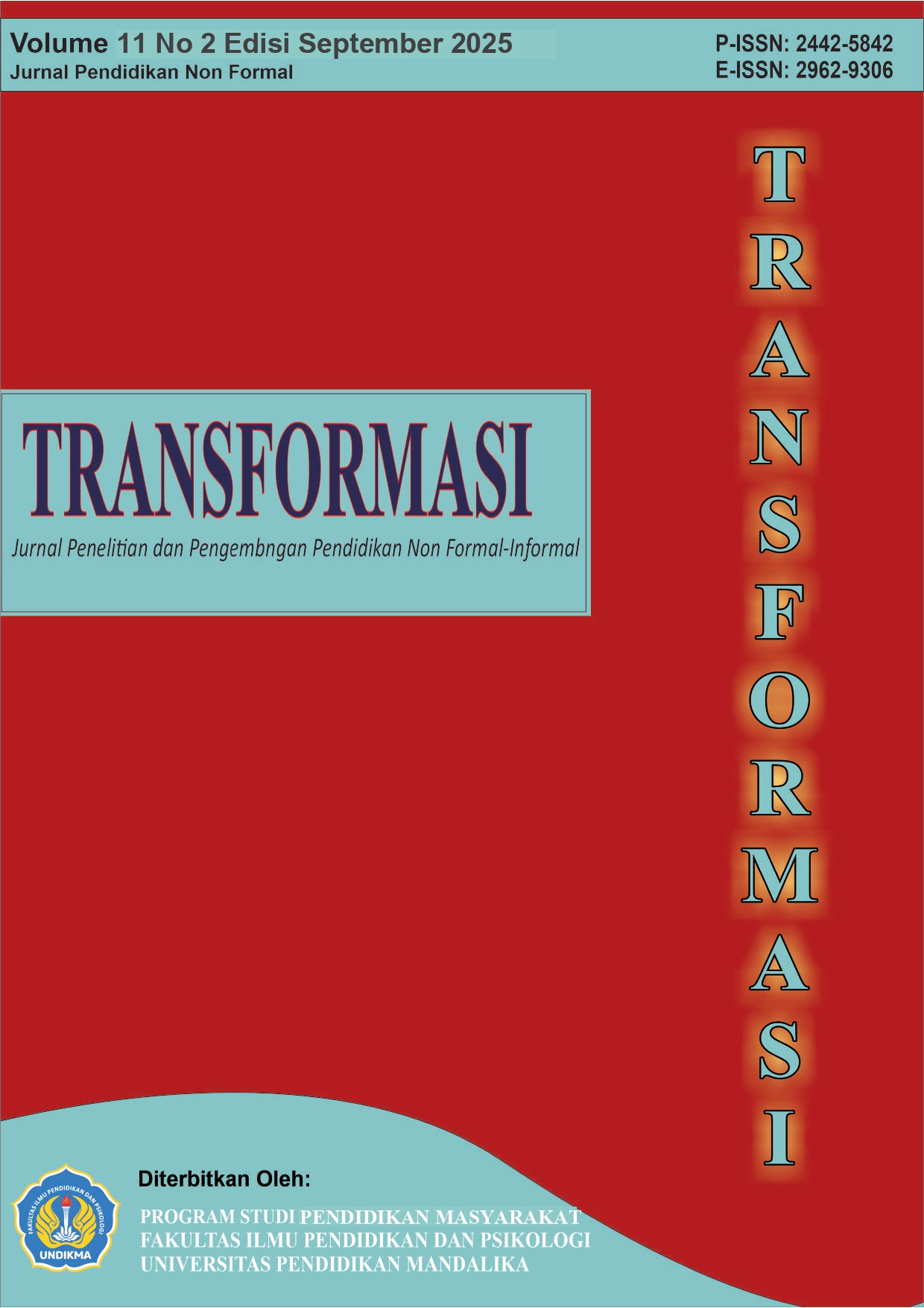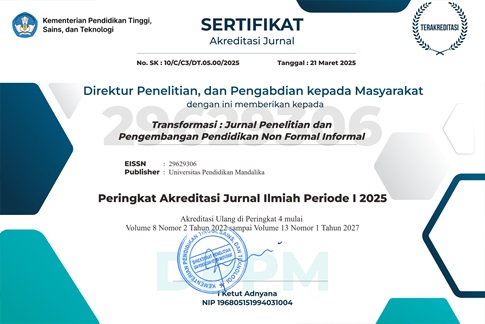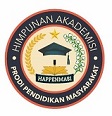Peran Kecerdasan Emosional dalam Kepemimpinan Pendidikan: Analisis Bibliografi 2000-2025
DOI:
https://doi.org/10.33394/jtni.v11i2.17095Keywords:
Emotional Intelligence, Educational Leadership, Bibliography., Kecerdasan Emosional, Kepemimpinan Pendidikan, Bibliografi.Abstract
Abstract: This study analyzes the role of emotional intelligence in educational leadership through a systematic bibliographic analysis of the literature published between 2000 and 2025. Successful leadership depends not only on cognitive intelligence, but also on the ability to manage emotions, self-restraint, be highly motivated, understand the emotions of others, empathy, creativity, and tolerance. In the context of education, leaders must be able to inspire and motivate staff and learners, where intellectual capacity and managerial skills alone are not enough without emotional intelligence. Emotional intelligence, according to Goleman, includes the ability to recognize and manage one's own emotions and others, motivate, and build positive social relationships. Although many studies have addressed aspects of emotional intelligence in educational leadership, there is still no comprehensive bibliographic analysis integrating these findings. This research aims to fill this gap by using quantitative methods and bibliometric analysis on data taken from Scopus from 2000 to 2025. The keywords used were "Emotional Intelligence" and "Education Leadership". The initial search yielded 200 articles, which were then filtered by topic relevance. After making the selection, 10 articles were used as the main reference because of their deep relevance to the research focus. The results of the analysis also included author and keyword mapping using VOSviewer, which shows publication trends and clustering of related topics.
Abstrak: Penelitian ini menganalisis peran kecerdasan emosional dalam kepemimpinan pendidikan melalui analisis bibliografi sistematis dari literatur yang diterbitkan antara tahun 2000 dan 2025. Kepemimpinan yang berhasil tidak hanya bergantung pada kecerdasan kognitif, tetapi juga pada kemampuan mengelola emosi, menahan diri, memiliki motivasi tinggi, memahami emosi orang lain, empati, kreativitas, dan toleransi. Dalam konteks pendidikan, pemimpin harus mampu menginspirasi dan memotivasi staf dan peserta didik, di mana kapasitas intelektual dan keterampilan manajerial saja tidak cukup tanpa kecerdasan emosional. Kecerdasan emosional menurut Goleman meliputi kemampuan mengenali dan mengelola emosi diri sendiri dan orang lain, memotivasi, dan membangun hubungan sosial yang positif. Meskipun banyak penelitian telah membahas aspek kecerdasan emosional dalam kepemimpinan pendidikan, masih belum ada analisis bibliografi komprehensif yang mengintegrasikan temuan-temuan ini. Penelitian ini bertujuan mengisi kekosongan tersebut dengan menggunakan metode kuantitatif dan analisis bibliometrik pada data yang diambil dari Scopus dari tahun 2000 hingga 2025. Kata kunci yang digunakan adalah "Emotional Intelligence" dan "Education Leadership". Pencarian awal menghasilkan 200 artikel, yang kemudian disaring berdasarkan relevansi tema. Setelah melakukan penyeleksian, 10 artikel dijadikan rujukan utama karena relevansinya yang mendalam terhadap fokus penelitian. Hasil analisis juga mencakup pemetaan penulis dan kata kunci menggunakan VOSviewer, yang menunjukkan tren publikasi dan klasterisasi topik terkait.
References
Baba, M. M., Makhdoomi, U. M., & Siddiqi, M. A. (2021). Emotional Intelligence and Transformational Leadership Among Academic Leaders in Institutions of Higher Learning. Global Business Review, 22(4), 1070–1095.
Brinia, V., Zimianiti, L., & Panagiotopoulos, K. (2014). The role of the principal’s emotional intelligence in primary education leadership. Educational Management Administration & Leadership, 42(4), 28–44.
Cahyaningtiyas, E., & Nuraini, N. (2022). Tingkat Kecerdasan Emosional Peserta Didik. EPIK: Edukasi Penerapan Ilmu Konseling, 1(2), 71–80. https://doi.org/10.37010/epik.v1i2.11353
Donthu, N., Kumar, S., Mukherjee, D., Pandey, N., & Lim, W. M. (2021). How to conduct a bibliometric analysis: An overview and guidelines. Journal of Business Research, 133, 285–296. https://doi.org/10.1016/j.jbusres.2021.04.070
Fatonah, I. (2013). Kepemimpinan Pendidikan. Jurnal Tarbawiyah, 10(2).
Goldring, E., Cravens, X., Porter, A., Murphy, J., & Elliott, S. (2015). The convergent and divergent validity of the Vanderbilt Assessment of Leadership in Education (VAL-ED): Instructional leadership and emotional intelligence. Journal of Educational Administration, 53(2), 177–196. https://doi.org/10.1108/jea-06-2013-0067
Goleman, D. (2020). Emotional Intelligence; why it can matter more than IQ. Great Britain by CPI Group.
Goleman, D. (2024). Emotional Intelligence; Kecerdasan Emosional; Mengapa EI Lebih Penting dari IQ (Digital). Gramedia Pustaka Utama.
Hamdan, S. R. (2019). Kecerdasan Emosional Dalam Al-Qur’an. SCHEMA; Journal of Psychological Research, 35–45.
Haumahu, C. P., Rohmah, C., & Al-Amin. (2024). The Role of Emotional Intelligence in Educational Leadership: A Comprehensive Review of the Literature. Indonesian Journal of Education (INJOE), 4(3).
Kareem, O. A., & Kin, T. M. (2018). The development of principal change leadership emotional intelligence model. International Journal of Management in Education, 12(3).
Mukhtar, N. A. (2020). The Effects of Perceived Leadership Styles and Emotional Intelligence on Attitude Toward Organizational Change Among Secondary School Teacher. Asian Journal of University Education, 16(2), 36–45.
Noori, A. Q., Orfan, S. N., & Noori, N. (2024). Principals’ Transformational Leadership and Teachers’ Emotional Intelligence: A Cross-Sectional Study of Takhar High Schools, Afghanistan. Leadership and Policy in Schools, 23(3), 550–565.
Parrish, D. R. (2015). The relevance of emotional intelligence for leadership in a higher education context. Studies in Higher Education, 40(5), 821–837.
Prawitasari, J. E. (1998). Kecerdasan Emosi. Buletin Psikologi, 1, 21–31.
Ramadhan, W., Jihad, M. S. I., & Rahman, A. L. (2024). Peran Gaya Kepemimpinan, Kompetensi, dan Kecerdasan Emosional Sangat Penting dalam Membentuk Motivasi dan Kinerja Guru di Madrasah. Moral : Jurnal kajian Pendidikan Islam, 1(3).
Samul, J. (2020). Emotional and Spiritual Intelligence of Future Leaders: Challenges for Education. Education Sciences, 10(7), 178. https://doi.org/10.3390/educsci10070178
Schreyer, H., Plouffe, R. A., Wilson, C. A., & Saklofske, D. H. (2023). What makes a leader? Trait emotional intelligence and Dark Tetrad traits predict transformational leadership beyond HEXACO personality factors. Current Psychology, 42(3).
Shrivastava, S., Martinez, J., Coletti, D. J., & Fornari, A. (2022). Interprofessional Leadership Development: Role of Emotional Intelligence and Communication Skills Training. MedEdPORTAL. https://doi.org/10.15766/mep_2374-8265.11247
Simamora, S. C., Gaffar, V., & Ariel, M. (2024). Systematic Literatur Review Dengan Metode Prisma: Dampak Teknologi Blockchain Terhadap Periklanan Digital. Jurnal Ilmiah M-Progress, 14(1). https://doi.org/10.35968/m-pu.v14i1.1182
Simaremare, S. M., Turnip, H., & Sihite, D. M. (2025). Peran Kecerdasan Emosional Dalam Kepemimpinan Siswa. Pediaqu : Jurnal Pendidikan Sosial dan Humaniora, 4(1).
Sinaga, R. S. (2022). Peranan Dan Fungsi Kepemimpinan Dalam Pendidikan Yang Efektif Dan Unggul. Pediaqu: Jurnal Pendidikan Sosial dan Humaniora, 1.
Suryana, S. (2019). Pentingnya Kecerdasan Emosi bagi Kepemimpinan yang Efektif di Era Milenial Revolusi 4.0. Jurnal Inspirasi, 10(1), 78–97. https://doi.org/10.35880/inspirasi.v10i1.72
Wibowo, E., & Salim. (2022). Analisis Bibliometrik Penelitian dengan Tema “Digital Archive.” Jurnal Ilmu Informasi, Perpustakaan, dan Kearsipan, 24(2). https://doi.org/10.7454/JIPK.v24i2.004
Downloads
Published
How to Cite
Issue
Section
Citation Check
License
Copyright (c) 2025 Transformasi : Jurnal Penelitian dan Pengembangan Pendidikan Non Formal Informal

This work is licensed under a Creative Commons Attribution-ShareAlike 4.0 International License.
License Term
Â
This work is licensed under a Creative Commons Attribution-ShareAlike 4.0 International License.












